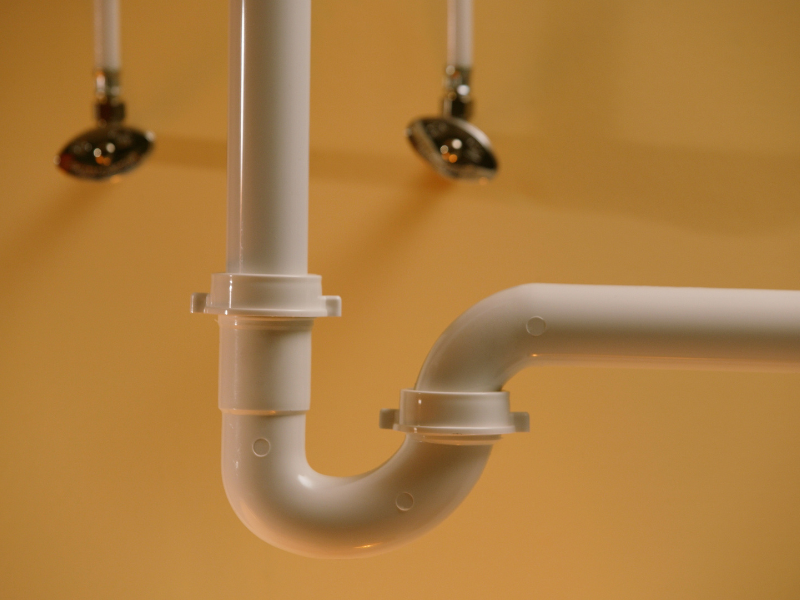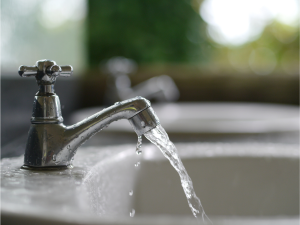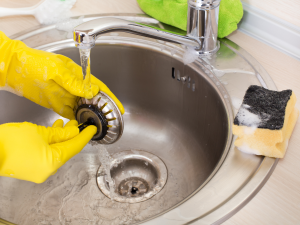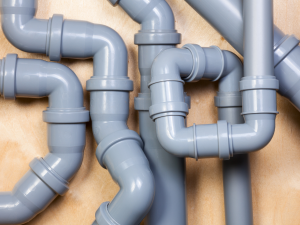To many people across the United States, summer is considered one of the best seasons of the year. After a few long months of snow, rain, and chilly weather, the combination of the sun shining and the weather warming up makes everyone much happier.
However, there are times when the pipes in your home suddenly burst, and often at the most inopportune times. Many homeowners are left wondering; why do pipes burst in summer?
More often than not, the change in temperature and weather can cause all sorts of changes to happen inside the pipes themselves. With the worst of winter over, the metal of the pipes has a chance to retract back into its original shape. But several factors, many of which we’ve listed below in this article, can cause damage to the pipes. Eventually, the pipes burst at the worst time.
If you’re dealing with burst pipes now and want to replace them, or if you want help in doing maintenance checks to prevent your pipes from bursting during the summer, contact our team at Clover Contracting for help. We’ll do our best to help as soon as we can so that you aren’t left without help for long.
What Causes a Pipe to Burst in Summer Inside Your Home?
Almost nothing can be worse than having a pipe burst during the hot and dry days of the summer months. The water can leak out everywhere, soaking into the walls and floors, and causing damage to the foundations of your home.
However, most of the time, your pipes burst due to a specific cause, each of which is avoidable if you know what you’re looking for. Many of these causes are often the most common answers to “why do pipes burst in summer?”.
Tree and Bush Roots Grow Faster in Summer
One of the most common causes that your pipes burst is the increase of plant root growth during the summer months. While shrubs and bushes can lead to a supply pipe or a hot water pipe burst, it isn’t the most damaging cause. Trees, in particular, can cause far more damage to your pipes for two main reasons.
The first – and most well-known cause – is the trees’ roots. Even smaller trees have large, often thick, roots that expand in all directions. Since the trees require a large amount of water to grow properly, these slow-growing roots can break into the pipes, causing all sorts of damage. Additionally, if a large enough tree is settled above a pipe, the weight of the tree can cause them to pop apart or even get crushed.
Clogs and Blockages From Summer Activities
One of the main answers to the question, “why do pipes burst in summer?” is an increase in clogs forming. When it comes to the weather getting warmer as summer approaches, more kids – and adults alike – start heading out and staying out for much longer periods. Many people want to get out of their houses more often to enjoy the weather, especially after what can seem like a long few months of winter.
But – as it always is with spending time in the great outdoors – people often get dirty and need to clean up before heading to bed.
With all that dirt and grime flowing down the drain of your showers and bathtubs, clogs become far more likely to happen. Since more people go outside during the summer months, the likelihood of clogs forming and stopping the flow of water increases too. Eventually, if these blockages stay in the pipes for long enough, they can cause the pressure to build and eventually lead to something like a water pipe burst in the attic.
The Sun’s Rays as a Heat Source
Naturally, when the seasons change and the winter snow finally melts thanks to the sun, everything gets much warmer. However, all that heat can also negatively affect the metal of your home’s pipes. As the pipes get warmer, they tend to expand, causing the metal to weaken. Due to that fact, the pipes can suddenly crack and cause leaks whenever you use a lot of water quickly.
And while the answer to, “can pipes burst in warm weather?” is a solid yes, the reasons behind it are twofold. While the sun’s heat can cause the pipes to weaken, the metal won’t burst immediately. Typically, enough force needs to be put into either hitting the pipe or pushing the water through it.
Unfortunately, heated water often has a higher psi rating. While there are measures put into a home’s plumbing to reduce the pressure as soon as it’s heated, the heat leaching into your home can cause the pressure to build up again. The result is high water pressure that can cause your already weakened pipes to burst suddenly.
The Lack of Rain Causes the Soil to Move
One of the main signs of the change over from spring to summer is often the lack of frequent rain and thunderstorms. While that may be great for many people that want to go outside more, the change has one big drawback.
With the lack of rainfall comes drier soil around your home’s drain pipes. That dry soil can then shift with small movements above ground and, if enough pressure is exerted, the pipes can break or disconnect from any connections.
Luckily, doing simple things like gardening, watering your lawn, or simply setting up water-based summer activities can dampen the soil enough.
Takeaway
There are many more ways that your home’s pipes might burst without warning, though these are the main ways it might happen during the summer. The change in weather often brings far more heat that can affect the soil, your home, and its pipes negatively.
While spring does often help reduce how badly these effects influence, any small change in weather or a simple lingering freeze before a hot day can cause a drastic change to happen.
That drastic change can then cause damage to happen, much of which you can’t always fix without professional help. Fortunately, our team at Clover Contracting understands how a burst pipe can hinder your daily life. So we do our best to provide reliable services in a timely fashion.




